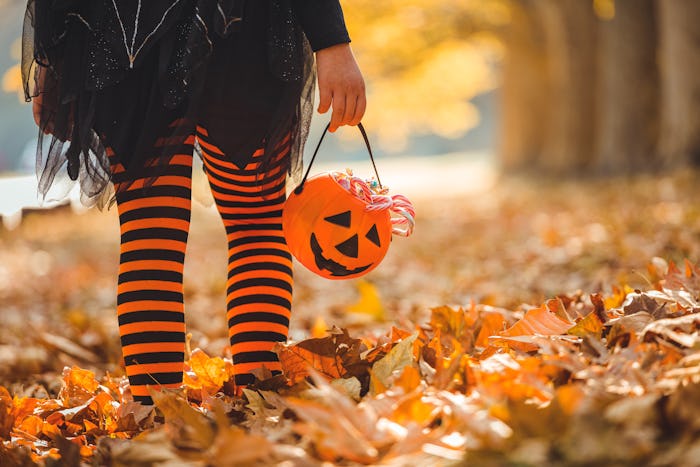News

The CDC Has Officially Warned Against Trick-Or-Treating This Year
The Centers for Disease Control and Prevention (CDC) has officially warned against traditional door-to-door trick or treating in a series of new guidelines for celebrating Halloween amidst the ongoing coronavirus pandemic. But while many traditions have been deemed unsafe due to the threat of COVID-19, the CDC's Halloween guidelines haven't completely canceled this spooktacular holiday.
"Many traditional Halloween activities can be high-risk for spreading viruses," the CDC warned in recently released guidelines. "There are several safer, alternative ways to participate in Halloween."
The CDC classified traditional door-to-door trick-or-treating as an activity with a "higher risk" of spreading COVID-19. Other "higher risk" activities included indoor costume parties, indoor haunted houses, hayrides or tractor rides done with people not in your household, trick-or-treating done in parking lots from the trunks of cars, and traveling to a fall festival happening outside of your town, especially if you live in an area with active cases of COVID-19.
But while Halloween may look different this year, it doesn't have to be canceled completely. To minimize the spread of COVID-19 while celebrating the year's spookiest holiday, the CDC recommended families decorate their home or living space, carve or decorate pumpkins together and display them. Pumpkin carving or decorating can also be done with friends or neighbors if done outside, without shared tools, and with members of different households wearing face coverings and remaining at least six feet apart.
Other "lower risk" activities include a virtual Halloween costume contest organized among friends or classmates, a family Halloween movie night, and a Halloween-themed scavenger hunt built around a walk outside to admire other houses' Halloween decorations from a distance. The CDC also noted that trick-or-treating could be turned into a scavenger hunt with children in the same household tasked with "hunting" for candy clues inside their own home or backyard rather than from house to house.
Families in areas where COVID-19 case numbers are low may be able to participate in the CDC's recommended "moderate risk activities," which include one-way socially distanced trick-or-treating for individually wrapped goodie bags that have been left outside for children to grab, an outdoor socially distanced Halloween movie screening, an outdoor socially distanced costume parade with face masks, an outdoor one-way haunted forest walk where people can remain more than six feet apart, or visiting a pumpkin patch or apple orchard where social distancing and hand sanitizer is encouraged.
For all families, the CDC recommended increasing the amount of space between members of different households when participating in activities that may provoke screaming as respiratory droplets can travel farther than six feet when screaming. The CDC also cautioned against considering a costume mask to be an adequate substitute for a cloth face covering.
"A costume mask should not be used unless it is made of two or more layers of breathable fabric that covers the mouth and nose and doesn’t leave gaps around the face," the CDC said. "Do not wear a costume mask over a protective cloth mask because it can be dangerous if the costume mask makes it hard to breathe. Instead, consider using a Halloween-themed cloth mask." You can find a number of Halloween-themed cloth face masks for kids and adults on Etsy.
Unsurprisingly, the CDC recommends anyone who may have COVID-19 or who may have been exposed to someone with the virus not participate in any in-person Halloween activities, including handing candy to trick-or-treaters.
If you think you’re showing symptoms of coronavirus, which include fever, shortness of breath, and cough, call your doctor before going to get tested. If you’re anxious about the virus’s spread in your community, visit the CDC for up-to-date information and resources, or seek out mental health support. You can find all of Romper’s parents + coronavirus coverage here.